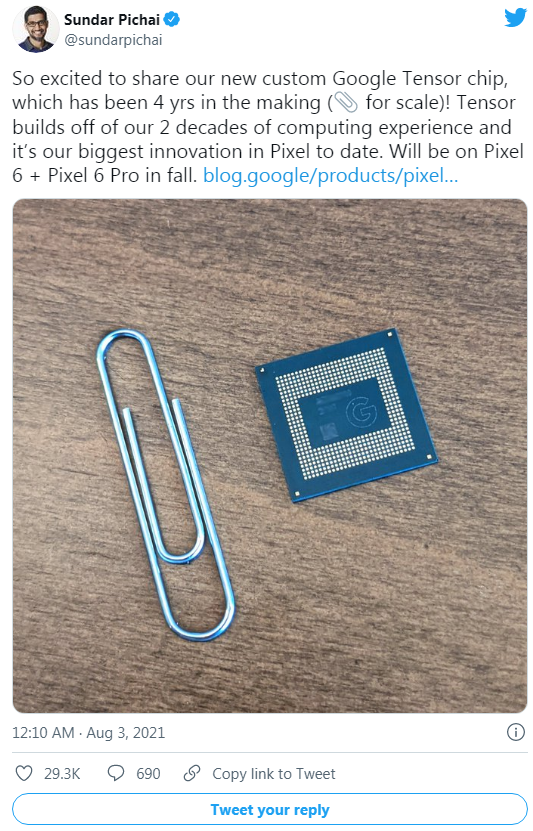Google earlier announced that Pixel 6 series smartphones will be equipped with self-developed Tensor processors.
Google’s introduction of the processor only emphasized its AI performance, and did not introduce the specifications of the CPU/GPU, so the specific performance of the processor has always been a mystery.
Until recently, XDA broke the news, predicting some performance parameters of the Tensor processor. In an early report from XDA, it was stated that Pixel 6 may adopt the public ARM Mali-G78 GPU design, similar to the Samsung Exynos 2100, and will adopt Samsung’s 5G modem solution.
Regarding the CPU part of the core, XDA broke the news in a report on September 16, and its information comes from the Geekbench benchmark database and sources.

The CPU of the Tensor processor uses a configuration of two Cortex-X1 high-performance cores with a main frequency of 2.802 GHz + two Cortex-A76 normal cores with a main frequency of 2.253 GHz + four Cortex-A55 energy-saving cores.
This structure is a bit strange for the common processors on the market, but similar ARM’s big.LITTLE architecture design has been launched for a long time, and has even entered the market, proving the rationality of the architecture.
The previous common ARM processor used a configuration of four performance cores + four energy-saving cores. But after ARM brought the more powerful Cortex-X1 core option last year, this year’s flagship machine began to appear “three CPU cluster” design.
For example, Snapdragon 888 SoC uses a Cortex-X1 + three Cortex-A78 + four Cortex-A55 architecture design.
In order to obtain better performance, Google uses two Cortex-X1 high-performance cores on Tensor. From a performance perspective, the peak performance of Tensor will be stronger than the current Qualcomm and Samsung processors.
It is worth mentioning that although Tensor is equipped with two Cortex-X1 high-performance cores, it also carries two older Cortex-A76 cores.
This design method may have an important relationship with the cost, after all, the most expensive Cortex-X1 core has been added.
As Google’s self-developed processor, Tensor is quite worth looking forward to.
![]()





